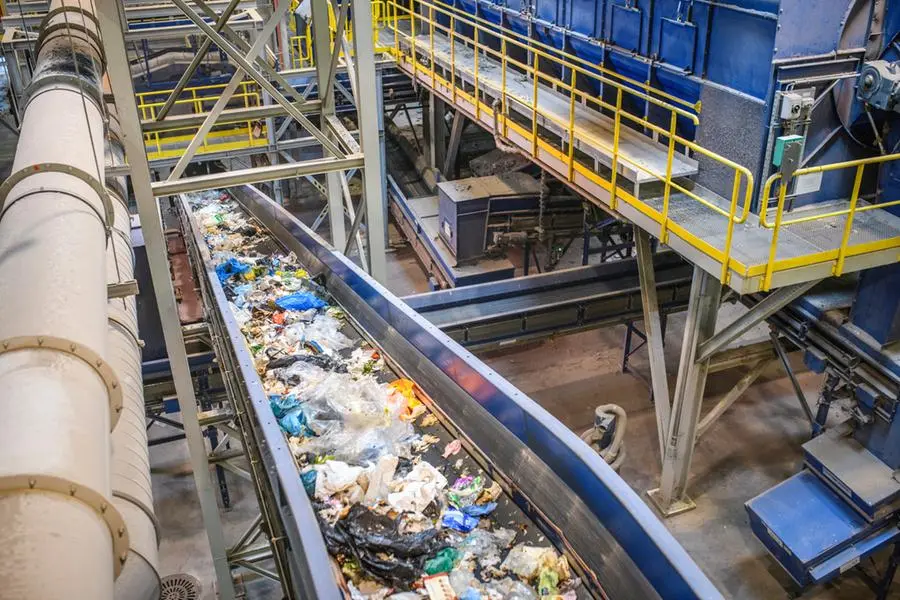PHOTO
The Speaker of the Economic Community of West African States’ Parliament (ECOWAS Parliament), Hadja Mémounatou Ibrahima, has blamed the menace of plastic waste in the region on a lack of adequate infrastructure for collecting, sorting, and processing plastic waste.
Speaking on Tuesday at the opening of the delocalized meeting of the Joint Committee on Agriculture, Environment, and Natural Resources/Energy, Mining, and Infrastructure of the Parliament of the Economic Community of West African States (ECOWAS) held in Winneba, Ghana, the Speaker also identified lack of awareness among the people as one of the factors and warned that plastic waste pollution may have a significant impact on food security in ECOWAS.
She lamented that in spite of efforts made at different levels of authorities to combat the situation, ECOWAS “is still struggling to eradicate plastic waste from our towns, countryside, and oceans.
She said, “The scourge is an environmental threat and a brake on our economic development. The impact on public health is also a cause for concern, with increased risks of illness linked to pollution and contamination of water resources.
“At an international level, in addition to the numerous conventions adopted to combat climate change, awareness of the many negative impacts of plastic waste on the environment and human and animal health has led the international community to institute a “World Plastic Bag Free Day” in 2010, which is celebrated every year on July 3.
“At the community level, ECOWAS, aware of the urgency of the situation, has adopted a community policy for the management of plastic waste. This ambitious and necessary policy aims to promote the reduction, recycling, and recovery of plastic waste while ensuring the responsible management of non-recyclable waste.
“At the national level, to effectively combat plastic pollution, certain Member States, such as Togo, Mali, Côte d’Ivoire, Burkina Faso, Guinea-Bissau, Niger, Gambia, and Senegal, have already adopted legislation to regulate the plastics sector.
“In addition, ECOWAS has adopted the regulation on the Regulation of Plastic Products and the Harmonisation of the Environmentally Sound Management of Plastic Waste in the ECOWAS Member States to alleviate the difficulties experienced by the Member States in effectively implementing the regulations already in place.”
Describing West Africa as the cradle of vibrant cultures and exceptional natural resources, she was, however, worried that the sub-region is confronted by a significant environmental challenge that threatens development and collective well-being through the proliferation of plastic waste.
“The impact of plastic pollution on our ecosystem is undeniable and poses a significant threat to our survival. The figures are alarming. ECOWAS generates around 17 million tonnes of plastic waste annually, of which only 10 per cent is recycled.
“This lack of proper management leads to an accumulation of plastic waste in the environment, polluting our oceans, rivers, and soils and threatening biodiversity. Individual efforts are not enough. We need collective action and collaboration to propose effective solutions for plastic waste management.”
In the face of the challenges, the speaker stated the imperative of thinking deeply to devise innovative and sustainable solutions to the problem.
“I am confident in the participants’ expertise at this meeting to propose solutions that will enable us to meet our current needs without compromising those of future generations.
“I believe it is vital that the Parliament calls on the Member States to invest massively in research and development, encourage technological innovation in the recycling and recovery of plastic waste, and strengthen the capacities of local players in the responsible management of plastic waste.
“Above all, we need to adapt our school curricula to include compulsory subjects on the fight against climate change in general and plastic waste in general to better prepare them to adapt to these new challenges.
“The fight against plastic pollution is a shared one. It concerns environmental issues, social justice, and sustainable development. By joining forces, sharing experiences, and exploring innovative solutions, we can meet this challenge and build a more sustainable future for our region.”
The Speaker, however, used the occasion of her speech to thank the people and the government of Ghana, especially President Nana-Addo Dankwa Akufo-Addo, for the warm reception.
She also commended the 3rd Deputy Speaker of the ECOWAS Parliament, Honourable Alexander Kwamena Afenyo-Markim, for the efforts made to enable the committee to hold its meeting in the best possible conditions.
Copyright © 2022 Nigerian Tribune Provided by SyndiGate Media Inc. (Syndigate.info).





















